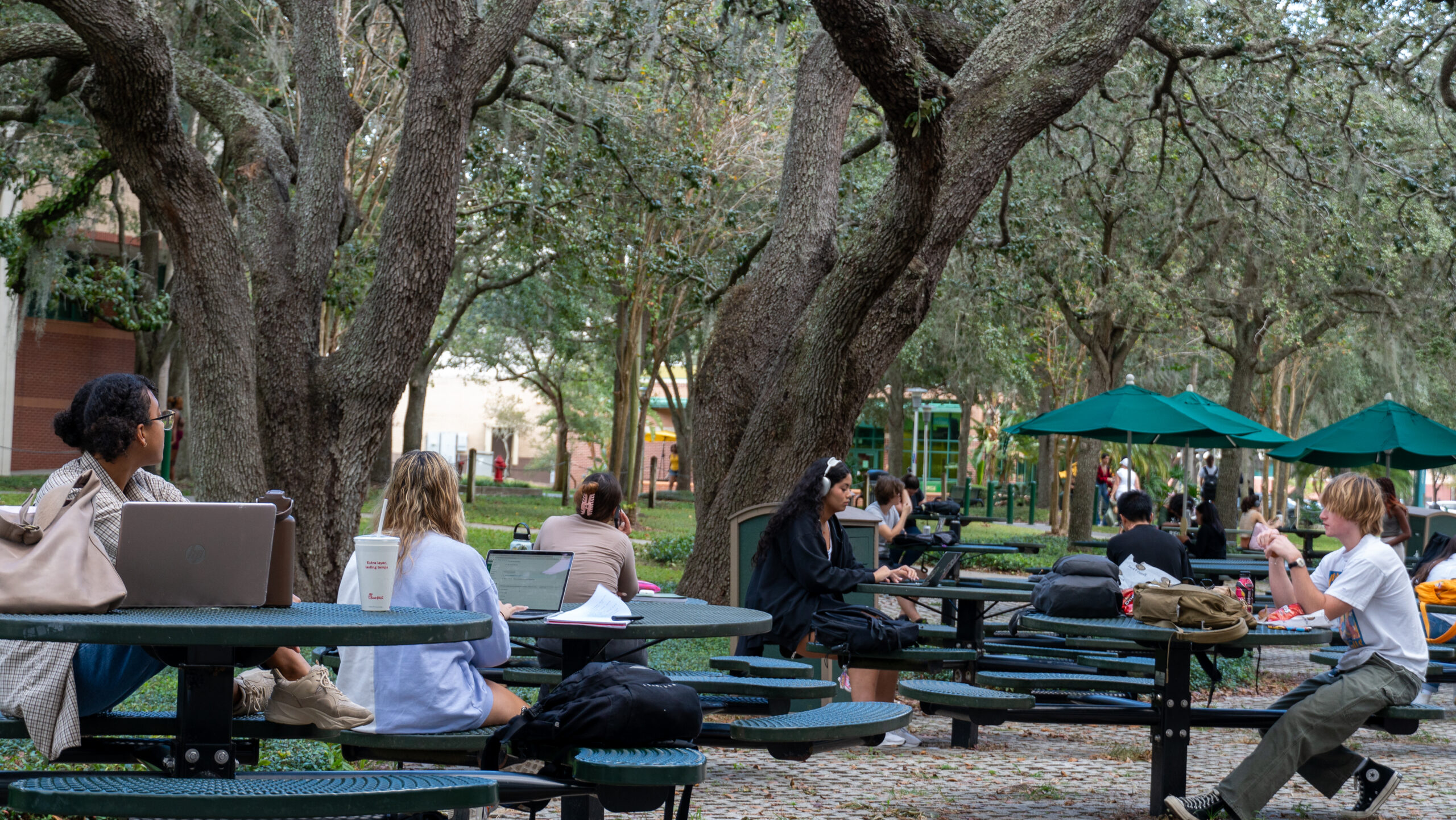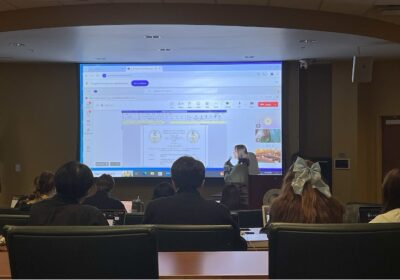Florida’s new proposed regulation threatens free speech on college campuses, students say

For senior marine biology major Jessica Mills, the proposed Florida regulation banning social activism and funding for diversity programs on college campuses is unrealistic. She said it is a pipeline into “complete control” over college students.
“It will absolutely infringe on our ability to have free speech,” Mills said. “It is going against our constitutional right, and I don’t think that will be a very productive rule for anyone’s advancement.”
The Florida Board of Governors (BOG) advanced a rule on Nov. 9 based on Senate Bill 266 that would prohibit funding for social issues and diversity initiatives on public Florida college and university campuses.
The regulation bans university spending on “any activity organized with a purpose of effecting or preventing change to a government policy, action, or function, or any activity intended to achieve a desired result related to social issues, where the university endorses or promotes a position in communications, advertisements, programs, or campus activities.”
The public can comment on the regulation through the board’s website. The rule is expected to come before the board for final approval in January.
Director of Media Relations Althea Johnson said in a statement that USF continues to monitor the progress of the regulation proposed by the BOG.
If the regulation is approved, USF will work with its partners across the State University System and the BOG to analyze how the university will be impacted, according to Johnson.
Senior economics major William Mleczko, the President of Students for Socialism (SFS) at USF, said a possible lack of funding from USF could limit the organization’s on-campus events as they’d have less money available to spend on them.
“Everything can be politicized, and that is dangerous,” Mleczko said. “I feel like this regulation will probably lead to a lack of an on-campus scene for many groups and organizations”
If the organization’s funding is affected by the regulation, Mleczko said SFS will have fundraisers in order to keep up with the events they have planned for next semester.
Mleczko said he believes the state created the proposed regulation to prevent progressive and multicultural student groups from sharing their thoughts.
“This definitely wasn’t a rule to prohibit conservative free speech. It was to prohibit talking about class, race, and all aspects of daily life that are really important,” Mleczko said.
The regulation described “social issues” as “topics that polarize or divide society among political, ideological, moral, or religious beliefs, positions, or norms.”
Senior ASL interpreting major Emma Heard said she thinks the regulation’s definition of social issues is too broad.
“How is the regulation going to define what polarizing is?” Heard said. “It is confusing because social issues are just human topics.”
Heard said she is concerned some classes are not going to be allowed anymore if the regulation prevents universities from spending money to promote social issues.
“If the regulation stops funding diversity, what happens to classes where diversity is the main topic?” Heard said.
The proposed regulation could halt students’ personal learning by dwindling the number of diversity-focused classes, according to Mills.
“I have taken classes in Ethics and Humanities, where we talked about social issues,” Mills said. “The new regulation would basically shut down most of those classes and all of the discussion within them.”
Mills said she is concerned about how the regulation could affect the way professors teach their classes at USF.
“It could affect how vulnerable they’re able to be with their students and how they can share opinions with them,” Mills said. “I think it would severely limit the amount of growth that could be done within college classes.”
Faculty will also be affected if the regulation is approved because they will have to be careful with the topics they teach, according to Mleczko.
“They didn’t study for years to become professors just to teach some sort of alternate history where everybody in society has gotten along this whole time,” Mleczko said.
Professor Kiersten Jensen said she assured her students that the new regulation won’t affect discussion in her classes. She said she doesn’t think people should be afraid of any ideas.
“If there’s something within the topic that is in the coursebook and students want to talk about, then we will talk about it,” Jensen said.
Jensen said college campuses should support young people’s right to express themselves while being confronted with other opinions to enhance the learning experience.
It is important to share beliefs, experiences and observations to help other people understand different perspectives, according to Jensen.
“University isn’t supposed to be a K-12,” Jensen said. “It’s supposed to provide opportunities for young people to mature and hopefully become global thinkers.”
Mills said it is important that students can share their opinions to learn how to grow together. College is one of the most important facilitators of that, and a huge part of the college experience is erased if that is taken away from students, according to Mills.
Mleczko said that as students graduate and start picking up responsibilities, they need to know how to communicate with people and understand that not everybody thinks like them.
Jensen said she will always make sure the classroom is a space where everybody feels comfortable sharing their opinions.
“I’m certainly not going to be bullied into suppressing ideas, suppressing speech, or doing self-censorship,” Jensen said.






